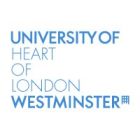Economy
An economy (from Greek οίκος – "household" and νέμoμαι – "manage") is an area of the production, distribution, or trade, and consumption of goods and services by different agents. Understood in its broadest sense, 'The economy is defined as a social domain that emphasizes the practices, discourses, and material expressions associated with the production, use, and management of resources'. Economic agents can be individuals, businesses, organizations, or governments. Economic transactions occur when two parties agree to the value or price of the transacted good or service, commonly expressed in a certain currency. However, monetary transactions only account for a small part of the economic domain.
Society
A society is a group of individuals involved in persistent social interaction, or a large social group sharing the same geographical or social territory, typically subject to the same political authority and dominant cultural expectations. Societies are characterized by patterns of relationships (social relations) between individuals who share a distinctive culture and institutions; a given society may be described as the sum total of such relationships among its constituent of members. In the social sciences, a larger society often evinces stratification or dominance patterns in subgroups.
Society
To make society
The sweeter welcome, we will keep ourself
Till supper-time alone.
William Shakespeare, Macbeth (1605), Act III, scene 1, line 42. Reported in Hoyt's New Cyclopedia Of Practical Quotations (1922), p. 724–25.
